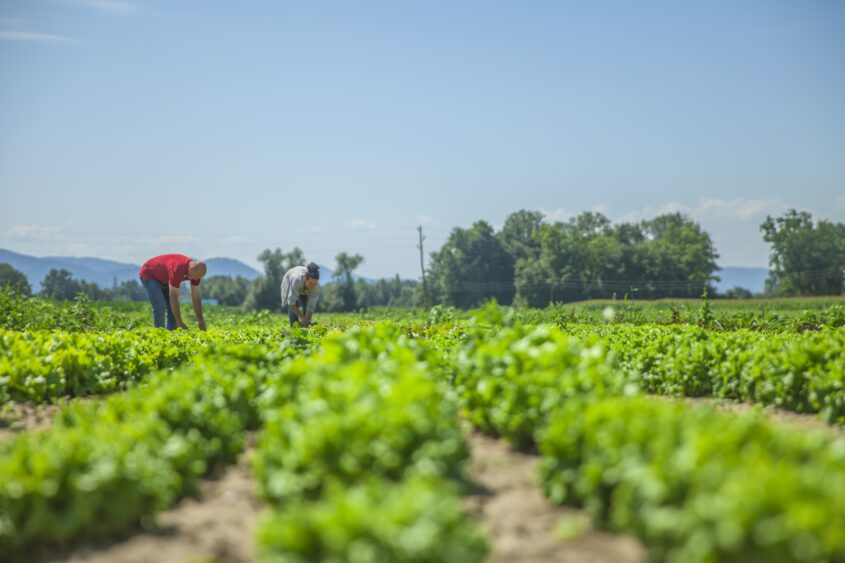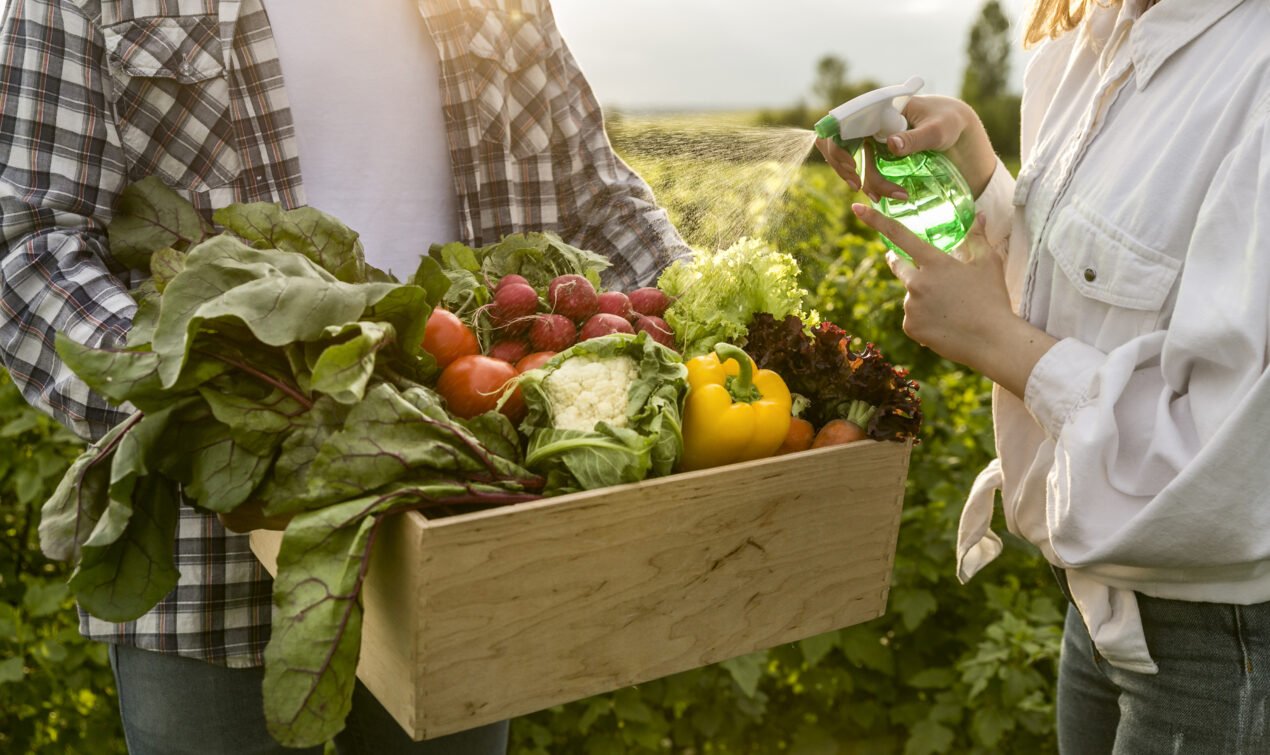What is the Difference Between Organic and Ecological Farming?

Do you often hear about organic, natural, bio, and ecological farming and wonder if there are differences among these product types?
In order to make informed choices when buying or using cosmetics, clothing, as well as fruits and food in general, it is important to understand the distinctions between organic, natural, and ecological products.
Additionally, it’s valuable to know what it means for a product to be organic, ecological, or biodynamic.
Don’t worry!
Let’s explore the differences between organic, natural, bio, and ecological products right away. This way, you can make informed choices and avoid potential disappointments or fraud.
Difference Between Organic and Ecological Farming
The difference between organic and ecological farming is that organic products always maintain a higher level of quality and control.
They are inherently eco-friendly, as they must adhere to strict standards throughout the product’s lifecycle, including the outright prohibition of chemicals, toxins, pollutants, and GMOs.
Moreover, it is produced, processed, and packaged following high ethical and sustainability standards. A product is considered natural when it contains substances of natural origin, such as plant, animal, and mineral-based ingredients.
On the other hand, a product is considered organic when a certain percentage of it consists of natural substances derived from organic farming.
This means it is free from GMOs, synthetic fertilizers, chemical pesticides, and harmful substances that can potentially endanger our health and the environment.
Organic products obtain certification attesting to the presence of a specific percentage of organic material, and every stage of production and processing adheres to specific quality standards.
Additionally, strict rules are imposed on the use of chemical substances, and these products are cruelty-free, meaning no experiments or tests on animals are conducted.
For non-food products like organic clothing, various certifications allow you to recognize organic cotton through labeling and confirm that the product contains at least a certain percentage of organic fabric.
Natural products are not composed entirely of natural substances; they often consist of substances obtained through the transformation of natural materials. Chemical processes are frequently employed to produce and preserve them, and synthetic substances are added.

Difference between Products of Natural Origin and BIO
There is also a difference between products of natural origin, which derive from substances found in nature and may undergo chemical processing and contain synthetic substances, derivatives of petroleum, etc., and certified natural products.
Certified natural products have obtained certification from a recognized independent authority at a legislative level.
This certification attests that the product contains a certain percentage (at least 10% in the case of cosmetics) of pure natural substances, and for the rest, it contains only substances obtained through synthesis or transformation of natural materials.
Often, the industry and marketing have made extensive use of misleading labels and claims that misuse the word ‘natural‘ to make the product appear healthy.
Therefore, always check the label, as only the presence of recognized certifications guarantees that it is an organic product.
Difference between Organic and Bio
In many contexts, “organic” and “bio” are essentially synonymous terms used to describe products that are produced using organic farming methods.
Both terms refer to the same concept of agriculture and food production that emphasizes sustainable and environmentally friendly practices.
However, the use of these terms can vary depending on the region and language. “Organic” is the term commonly used in English-speaking countries, while “bio” is often used in some European countries, especially in French and German-speaking regions.
Both terms indicate that the products have been grown or produced without synthetic pesticides, herbicides, genetically modified organisms (GMOs), or artificial fertilizers.
They typically adhere to specific guidelines and standards set by governmental or certifying organizations to ensure that the products are genuinely organic or bio.
Difference between Organic and Ecological Farming
A product is considered ecological (eco-friendly) when its production and characteristics are aimed at reducing environmental impact to make it more sustainable.
An eco-friendly product will, therefore, have a lower environmental impact compared to other “non-eco-friendly” products of the same type.
There are certifications that confirm a product’s eco-friendliness. These certifications can be self-declared by the manufacturer or obtained through checks by specialized certifying companies. Naturally, the latter option is more secure because it involves stricter requirements for certification.
For example, among the most common eco-certifications, we find the EU Ecolabel, EKOenergy, and NF Environnement.
The eco-friendliness of a product can apply to its entire lifecycle or a part of it, such as raw materials, reducing emissions during production, minimizing the use of toxic or polluting substances, sourcing, distribution, packaging, disposal, recycling, or the inherent characteristics of the product, such as when it enables energy savings.
An ecological product is, therefore, also an eco-sustainable product, meaning it aims to preserve the quality of the environment.
It is also eco-compatible, meaning it seeks to limit its negative impact on the environment, restore environmental balance, and reduce the consumption of chemicals, water, and energy.
The difference between organic and ecological farming is that in the case of organic products, there is always a higher level of quality and control.
Organic products are inherently eco-friendly, as they must meet strict standards throughout the product’s lifecycle. Additionally, their production not only limits but outright prohibits the use of chemicals, toxins, pollutants, and GMOs.

Difference between Organic and Biodynamic
The difference between organic and biodynamic products is that the latter, in addition to being organic, is obtained using plant substances from biodynamic farming. Biodynamic products are, therefore, certified organic products.
Biodynamic agriculture employs cultivation techniques that consider biodiversity, lunar phases, and planetary astronomical cycles. It relies exclusively on self-produced natural fertilizers through integrated farming practices on the farm.
Unlike organic certification, biodynamic certification is not legally regulated, and as a result, it does not hold legal validity.



